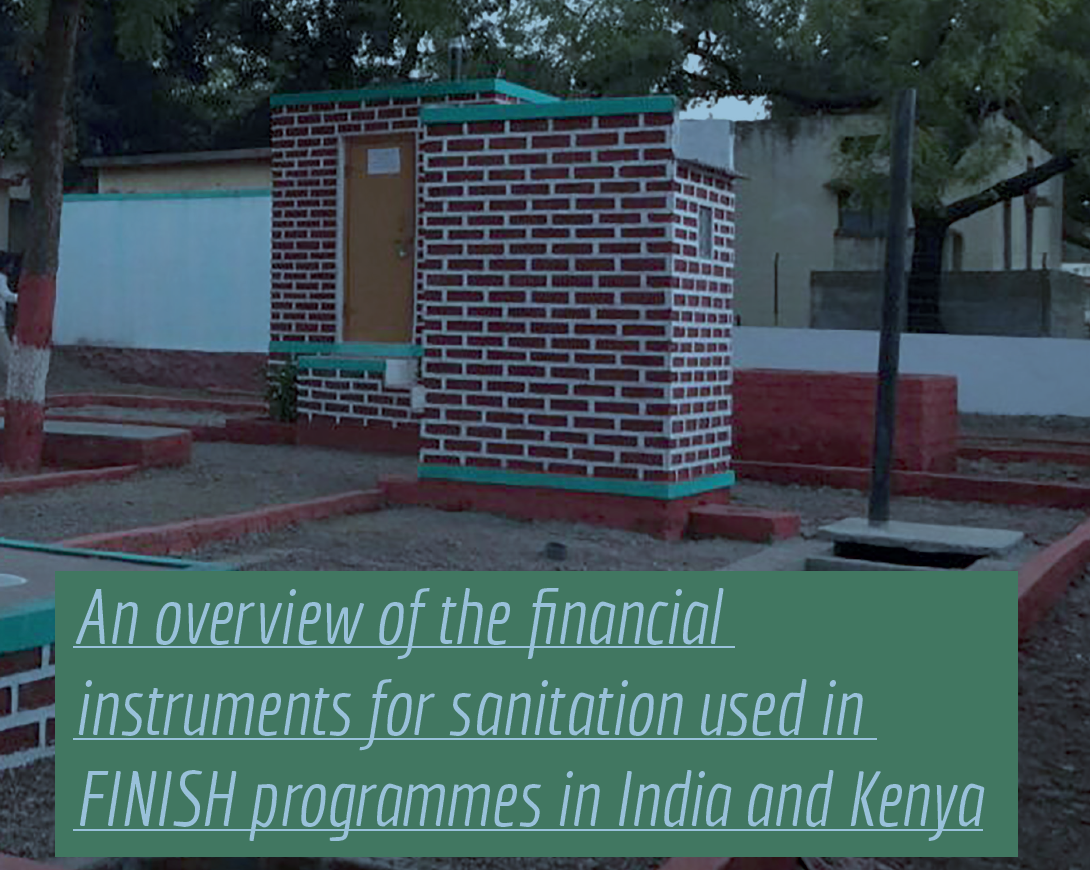
Financing Sustainable Development
The Sustainable Development Goals have been signed. Governments from all over the world have committed themselves to 17 ambitious goals that are designed to end poverty, protect the planet, and ensure prosperity for all. A question that requires an answer: how are we going to finance this?
During the International Conference on Financing for Development governments from all over the world came up with a package of more than 100 concrete measures that draw upon all sources of finance, technology, innovation and trade that is supposed to support the implementation the Sustainable Development Goals. “Financing needs for sustainable development are high, but the challenges are surmountable,” said UN secretary-General Ban Kimoon
at the opening of the Conference.
I believe the world has all the resources and expertise it needs to reach those goals, it will have to organise these differently though. With our Financing Sanitation Paper Series I hope to share our expertise on how we can finance Sustainable Development Goal 6: Ensure Access to Water and Sanitation for all.
Financing Sanitation Paper Series
The Financing Sanitation Paper Series is a unique collection of six articles about different aspects of sustainable financing of sanitation (in emerging markets) – from financial inclusion to private funding and from micro insurance to climate financing. You will find that many of the themes we write about are new in the context of sanitation financing. We are not only talking about sanitation financing but have taken a broader scope of financial inclusion. The idea of not having a toilet is perhaps as outlandish to many as the idea of not having a bank account or not being insured or not having any arrangements at all for old age, or more in general not being able to access financial services. Yet for many people having no toilet and being financially excluded are the reality. Financial inclusion can be facilitated by Governments, but as a rule it is left to market forces. Sanitation having a direct impact on public health has a much stronger Government influence, but does sanitation assets need to paid fully by Governments or donors? I do not think so. After all when people pay for something themselves they tend to appreciate it more than when it is a gift, yet there are some people who are too poor to pay. Dealing with this diversity is what financial inclusion is all about.
As the papers are very close to our daily practices as they are written purely on the basis of our experience, insights and materials developed in our own sanitation programmes in India and Kenya. As you can imagine, financial engineering is not a theoretical exercise, therefore every article will be based on our practical experiences. This is also the reason why you will find no references in most of our articles. The articles have been written by different experts in the field of sanitation, financing and business development, each one of them passionate and at the same time closely connected to sanitation financing from different perspectives. “Financing Sanitation – an overview of the financial instruments for sanitation used in FINISH programmes in India and Kenya” is the first in a series of six papers on sustainable financing of sanitation.
Sanitation as catalyst for development
Why this focus on financing sanitation, you wonder? As Guy Hutton and Arthur Wood have summarised in their UNESCAP 2012 report called “Development financing for tangible results: a paradigm shift to impact investing and outcome models”:
Sanitation offers several significant, but largely unexploited, advantages to provide a testing ground for new and innovative development models. It is linked to many other development issues such as health, environment, education, gender, disability, tourism and economic growth. The potential business opportunities in sanitation are significant. The entry of the private sector into the sanitation space is one of the current significant but unexploited investment opportunities that are gaining momentum.
Finally, to be able to finance sanitation sustainably, we need to work together, build innovative partnerships and share knowledge. We have developed the Financing Sanitation Paper Series for this specific reason, to share our experiences on financing sanitation and to start an exciting discussion on this very important topic. I therefore invite you to react to the papers on our blog, which you can find on www.finishsociety.org Looking forward to meet you there.
Valentin Post,
Financial Director WASTE and Partner/Chairman Board FINISH
vpost@waste.nl
